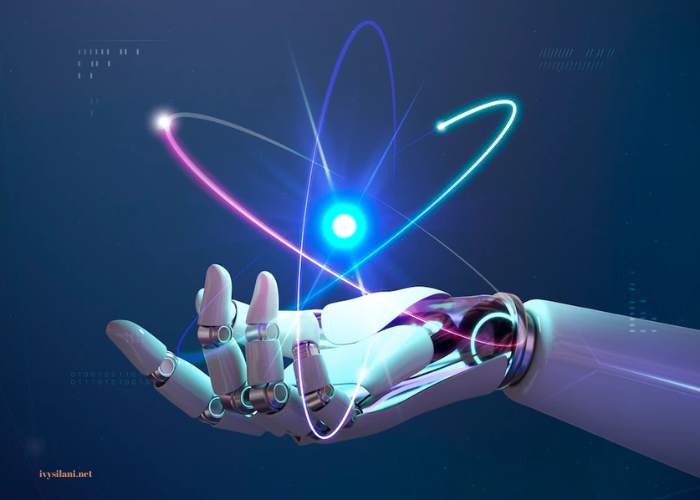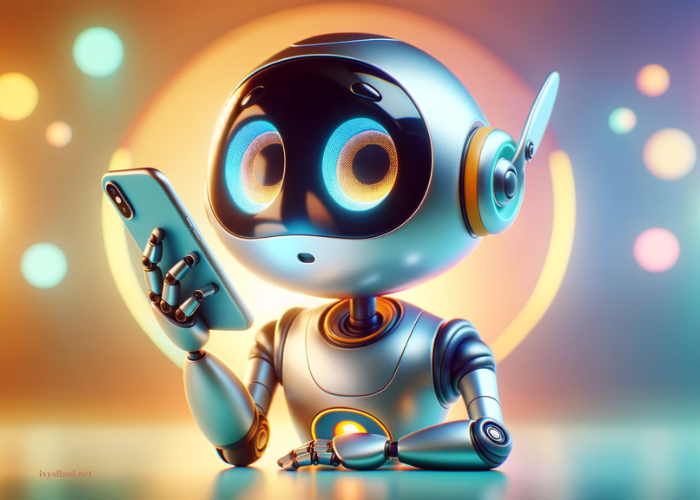Technology
Breakthrough Technologies Shaping the Future of Innovation

Innovation has always been the driving force behind human progress, and at the heart of this evolution are breakthrough technologies. These game-changing developments shape industries, transform economies, and redefine how we interact with the world. As we look towards the future, several emerging technologies are set to have a profound impact on innovation. From artificial intelligence (AI) to quantum computing, biotechnology, and renewable energy, these advancements will reshape the global landscape in ways we are only beginning to understand. In this article, we’ll explore the breakthrough technologies shaping the future of innovation and the potential they hold for transforming industries.
Artificial Intelligence and Machine Learning
Artificial intelligence (AI) is arguably the most influential technology of our time. AI and machine learning (ML) have already transformed numerous industries, including healthcare, finance, manufacturing, and entertainment. As AI becomes more sophisticated, its applications continue to expand, enabling new levels of automation, personalization, and efficiency.
AI in Healthcare
AI-powered systems are revolutionizing healthcare by enhancing diagnostics, streamlining administrative tasks, and providing personalized treatment plans. Machine learning algorithms can analyze vast amounts of medical data to detect patterns, predict diseases, and recommend treatments more accurately than traditional methods. AI-driven tools such as IBM Watson and Google’s DeepMind are making strides in drug discovery, genomics, and medical imaging, reducing the time it takes to develop new treatments and diagnose illnesses.
AI in Finance
In the finance sector, AI is automating tasks such as fraud detection, risk management, and customer service. Robo-advisors use AI algorithms to manage investment portfolios, while AI-powered chatbots provide 24/7 customer support. Financial institutions are also leveraging AI to analyze market trends and make data-driven decisions, helping traders and investors stay ahead of the curve.
AI in Autonomous Systems
Self-driving cars and drones represent another frontier for AI. Autonomous vehicles are set to revolutionize transportation, reducing accidents, improving traffic flow, and decreasing carbon emissions. Companies like Tesla, Waymo, and Uber are leading the charge in developing AI-driven autonomous systems, which are poised to reshape urban mobility in the coming decades.
Quantum Computing
Quantum computing represents a leap forward in computational power and problem-solving capabilities. Unlike classical computers, which rely on binary code (0s and 1s), quantum computers use quantum bits, or qubits, which can exist in multiple states simultaneously. This allows quantum computers to perform complex calculations at speeds unattainable by traditional computers.
Transforming Industries
Quantum computing has the potential to transform industries such as cryptography, drug discovery, and financial modeling. In cryptography, quantum computers could break traditional encryption methods, leading to the development of new, quantum-resistant security protocols. In pharmaceuticals, quantum computing could accelerate drug discovery by simulating molecular interactions with unprecedented accuracy. Financial institutions could also use quantum computers to optimize portfolios and manage risk more effectively.
Current Challenges
Despite its potential, quantum computing is still in its early stages of development. Building stable and scalable quantum computers is a significant challenge, as qubits are highly sensitive to environmental disturbances. However, companies like IBM, Google, and Microsoft are making progress in overcoming these obstacles, and quantum computing is expected to become more practical for real-world applications in the next decade.
Biotechnology and Genetic Engineering
Biotechnology is another field that is driving groundbreaking innovations, particularly in healthcare, agriculture, and environmental sustainability. Advances in genetic engineering, synthetic biology, and biomanufacturing are enabling scientists to manipulate biological systems with greater precision, leading to the development of new therapies, crops, and bio-based materials.
CRISPR and Gene Editing
CRISPR-Cas9, a revolutionary gene-editing tool, has garnered significant attention for its ability to modify DNA with unprecedented accuracy. CRISPR holds the promise of curing genetic disorders, improving crop yields, and even eradicating diseases such as malaria. Researchers are already exploring its use in treating conditions like sickle cell anemia, muscular dystrophy, and certain types of cancer.
Synthetic Biology
Synthetic biology is another area of biotechnology that is shaping the future of innovation. By engineering living organisms to perform specific tasks, scientists can create bio-based materials, fuels, and pharmaceuticals. Synthetic biology is also being used to develop sustainable alternatives to traditional manufacturing processes, reducing waste and lowering carbon footprints.
Personalized Medicine
Biotechnology is also driving the shift towards personalized medicine, where treatments are tailored to an individual’s genetic makeup. Advances in genomics, coupled with AI, are enabling healthcare providers to offer more precise diagnoses and treatments based on a patient’s unique genetic profile. This approach promises to improve treatment outcomes and reduce adverse effects, ultimately leading to more effective and efficient healthcare.
Renewable Energy and Sustainability Technologies
As the world grapples with the effects of climate change, the development of renewable energy technologies is more critical than ever. Breakthroughs in solar power, wind energy, energy storage, and grid technology are helping to reduce our reliance on fossil fuels and pave the way for a more sustainable future.
Solar and Wind Energy
Solar and wind power are leading the charge in the renewable energy sector. Advancements in photovoltaic technology are making solar panels more efficient and affordable, while innovations in wind turbine design are increasing the energy output of wind farms. Both technologies are becoming increasingly cost-competitive with fossil fuels, driving their widespread adoption.
Energy Storage
One of the biggest challenges in renewable energy is energy storage. Solar and wind power are intermittent, meaning they don’t always generate electricity when it’s needed. However, advancements in battery technology, particularly in lithium-ion and solid-state batteries, are addressing this issue by enabling the storage of excess energy for use during periods of low production.
Smart Grids and Energy Efficiency
Smart grid technology is also playing a crucial role in optimizing energy distribution and consumption. By using AI and IoT (Internet of Things) devices, smart grids can monitor energy demand in real-time and adjust the distribution of electricity accordingly. This helps reduce energy waste, improve efficiency, and ensure a more reliable energy supply.
5G and the Internet of Things (IoT)
The rollout of 5G networks is set to revolutionize connectivity and enable the widespread adoption of the Internet of Things (IoT). 5G offers faster data speeds, lower latency, and greater capacity than previous generations of wireless technology, making it the ideal infrastructure for supporting the growing number of connected devices.
IoT Applications
IoT refers to the network of interconnected devices that collect and exchange data over the internet. IoT has applications across various industries, from smart homes and wearables to industrial automation and healthcare. In smart cities, IoT devices can monitor traffic patterns, optimize energy usage, and improve public safety. In healthcare, IoT-enabled devices can track patient health in real-time, enabling remote monitoring and early intervention.
The Impact of 5G
The combination of 5G and IoT will unlock new possibilities for innovation. Autonomous vehicles, smart factories, and connected healthcare systems will all benefit from the enhanced connectivity and real-time data exchange provided by 5G networks. As more devices become connected, industries will be able to collect and analyze vast amounts of data, driving new insights and efficiencies.
Conclusion
Breakthrough technologies such as artificial intelligence, quantum computing, biotechnology, renewable energy, and 5G are shaping the future of innovation. These technologies are not only transforming industries but also addressing some of the most pressing challenges facing humanity, from healthcare and sustainability to security and connectivity. As we continue to push the boundaries of what’s possible, these innovations will pave the way for a more efficient, sustainable, and connected world. The future of innovation is bright, and these technologies are at the forefront of this exciting journey.
Blogs
AI Automation: Revolutionizing Global Tech Solutions

AI Automation and automation have become the twin engines driving the global tech revolution, transforming industries, enhancing productivity, and enabling innovations that were once considered the domain of science fiction. As the world becomes more interconnected and digital, AI and automation are proving to be pivotal in reshaping how businesses, governments, and individuals operate. This article delves deep into how AI and automation are revolutionizing global tech solutions, the opportunities and challenges they present, and their implications for the future.
The Dawn of AI and Automation
AI refers to the simulation of human intelligence by machines, while automation involves the use of technology to perform tasks with minimal human intervention. Together, they are creating an unprecedented shift in how processes are managed and executed across various sectors. AI enables machines to learn from experience, adapt to new inputs, and execute tasks that would otherwise require human intelligence. Meanwhile, automation reduces human error, increases efficiency, and allows for the execution of repetitive tasks on a massive scale.
The roots of AI can be traced back to the mid-20th century when computer scientists like Alan Turing began exploring the potential of machines to think like humans. Over the decades, advances in computing power, data storage, and algorithms have propelled AI from theoretical musings to real-world applications. Automation, on the other hand, gained momentum with the rise of the Industrial Revolution, where machines replaced manual labor in production lines. Today, the fusion of AI and automation has created a new frontier in technological solutions.
AI and Automation in Global Tech Solutions
The integration of AI and automation is revolutionizing tech solutions across a range of industries. From healthcare to manufacturing, finance to retail, AI-powered automation is streamlining processes, reducing costs, and driving innovation.
- Healthcare: Enhancing Diagnosis and Treatment
AI and automation are transforming the healthcare industry by improving diagnostic accuracy, personalizing treatment plans, and automating administrative tasks. AI-powered systems can analyze vast amounts of medical data, including patient records, clinical trial results, and medical literature, to provide doctors with more accurate diagnoses and treatment recommendations. Automation is also being used in robotic surgeries, where precision is paramount, and in the pharmaceutical industry to streamline drug discovery and development processes.
For instance, AI algorithms are now being used to detect diseases like cancer and heart conditions early, based on medical imaging. This not only improves patient outcomes but also reduces the strain on healthcare professionals by assisting in data interpretation. In addition, automation in medical supply chains ensures that critical supplies are distributed efficiently, reducing human error and improving response times in emergencies.
- Manufacturing: Smart Factories and Robotics
The manufacturing industry has been at the forefront of automation sincethe Industrial Revolution. However, with the infusion of AI, we are witnessing the rise of smart factories. AI-driven automation systems are capable of self-monitoring, self-correcting, and even predicting maintenance needs before a breakdown occurs. This minimizes downtime, reduces operational costs, and increases overall productivity.
Robots powered by AI are now capable of performing complex tasks that were once the preserve of skilled human labor. These robots can work alongside humans in collaborative environments, enhancing production line efficiency and reducing the risk of workplace accidents. In addition, AI is enabling manufacturers to optimize supply chains, forecast demand more accurately, and reduce waste by automating the entire production process.
- Finance: Automation in Banking and Fintech
AI and automation are driving innovation in the financial sector, particularly in banking and fintech. AI-powered algorithms are being used to detect fraud, assess credit risk, and even execute trades on stock markets with precision and speed that far outstrip human capabilities. Automation has streamlined customer service with the use of chatbots and virtual assistants, which provide 24/7 support to clients, answering queries and processing transactions without the need for human intervention.
Moreover, AI-driven automation is playing a critical role in personal finance management. Tools like robo-advisors use AI to analyze an individual’s financial situation and make investment recommendations tailored to their specific needs and goals. This democratizes access to financial advice, allowing even those with limited resources to benefit from expert financial planning.
- Retail: Enhancing Customer Experiences
In the retail sector, AI and automation are revolutionizing the way businesses interact with customers and manage operations. AI-driven recommendation engines are enhancing the customer experience by providing personalized product suggestions based on browsing history, purchase behavior, and preferences. Retailers are using automation to optimize inventory management, ensuring that products are restocked efficiently and minimizing the risk of overstocking or understocking.
Moreover, automation in logistics and delivery systems, driven by AI, is enabling faster, more reliable deliveries. For example, companies like Amazon are experimenting with AI-powered drones and autonomous delivery vehicles to ensure that customers receive their orders with unprecedented speed and accuracy. This not only enhances customer satisfaction but also reduces operational costs for retailers.
- Energy: Optimizing Resources
AI and automation are playing a critical role in optimizing energy consumption and improving the efficiency of power generation. AI-powered systems are being used to predict energy demand, allowing utility companies to optimize power distribution and reduce waste. Automation is also being used in renewable energy sectors, such as wind and solar, to enhance the efficiency of energy production.
For example, AI algorithms can predict wind patterns and adjust the orientation of wind turbines to maximize energy output. Similarly, automation in smart grids allows for real-time monitoring and adjustments to energy distribution, ensuring a more stable and efficient energy supply. These innovations are not only improving the reliability of energy systems but also contributing to the global push for sustainability.
Challenges and Ethical Considerations
While AI and automation offer numerous benefits, they also pose significant challenges, particularly in terms of job displacement, data privacy, and ethical concerns.
- Job Displacement: The Automation Paradox
One of the most pressing concerns surrounding automation is the fear of job displacement. As machines become more capable of performing tasks that once required human labor, there is growing anxiety about the impact on employment. While AI and automation create new opportunities, particularly in tech development and maintenance, they also render certain jobs obsolete. The challenge for governments and businesses is to ensure that workers are reskilled and upskilled to thrive in an increasingly automated world.
- Data Privacy and Security
AI relies heavily on data to function effectively, and the vast amount of data generated in today’s digital world raises significant concerns about privacy and security. The collection and processing of personal data by AI systems require robust regulations to ensure that sensitive information is protected from misuse or breaches. Striking the right balance between leveraging data for AI-driven innovation and protecting individual privacy is a key challenge moving forward.
- Ethical AI: Ensuring Fairness and Accountability
The ethical implications of AI are another area of concern. AI systems are only as unbiased as the data they are trained on, and if the data contains biases, the AI’s decisions may perpetuate discrimination or unfairness. Moreover, the use of AI in critical areas such as law enforcement and hiring raises questions about accountability. As AI systems become more integrated into decision-making processes, ensuring that they operate transparently and ethically is crucial.
The Future of AI and Automation
The future of AI and automation is bright, with continued advancements expected to reshape industries and redefine the way we live and work. As AI becomes more sophisticated, we can expect to see even greater integration with automation, enabling machines to handle increasingly complex tasks with minimal human intervention. Industries such as healthcare, manufacturing, and finance will continue to benefit from AI-driven innovation, while new applications in areas such as education, entertainment, and environmental conservation will emerge.
In conclusion, AI and automation are revolutionizing global tech solutions, driving unprecedented advancements in efficiency, productivity, and innovation. While challenges remain, the potential for positive impact is enormous. By addressing ethical concerns, ensuring fair implementation, and embracing the opportunities these technologies present, society can harness the full potential of AI and automation to create a more prosperous and equitable future.
-

 Entertainment9 months ago
Entertainment9 months agoiVysilani: A Comprehensive Guide to Your Favorite Streaming Platform
-

 Entertainment5 months ago
Entertainment5 months agoThe 1982 Movie Poltergeist Used Real Skeletons As – Tymoff
-

 Biography7 months ago
Biography7 months agoHeyimbee | Biography, Age, Wiki, Height, Net Worth, Relationship, Facts, Family, Education
-

 Entertainment8 months ago
Entertainment8 months agoMarvel Executive Producer Discusses the MCU’s Recent Struggles
-

 Biography8 months ago
Biography8 months agoJules Ari | Biography, Age, Wiki, Height, Net Worth, Relationship, Facts, Family, Education
-

 Biography6 months ago
Biography6 months agomissmiafit | Biography, Age, Wiki, Height, Net Worth, Relationship, Facts, Family, Education
-

 Biography8 months ago
Biography8 months agoJoeBen Bevirt | Biography, Age, Wiki, Height, Net Worth, Relationship, Facts, Family, Education
-

 Biography7 months ago
Biography7 months agoJellybeanbrains | Biography, Age, Wiki, Height, Net Worth, Relationship, Facts, Family, Education



